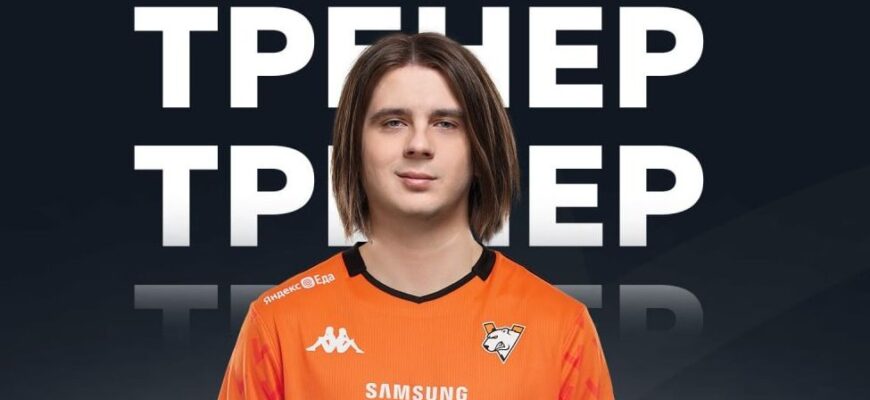The world of professional Dota 2 is a perpetual motion machine of roster changes, strategic shifts, and the relentless pursuit of peak performance. Few teams encapsulate this dynamic better than Virtus.pro (VP), a name synonymous with high-stakes esports. Recently, their performance has seen a noticeable uptick, a transformation that has not gone unnoticed by seasoned observers. Among them is professional player Mikhail “Misha” Agatov, who recently offered his candid insights into the factors underpinning VP’s resurgence.
The Roster Reconfiguration: From “Greed” to “Space”
According to Misha, the catalysts for VP’s improved form lie squarely in their recent roster adjustments. Specifically, the departure of midlaner Artem “Lorenof” Melnik and the arrival of Andrey “Serenada” Kushnaryov have been pivotal. Misha characterized Lorenof as a “greedy” player, one who, perhaps understandably, prioritized individual star power over the collective team dynamic.
“Lorenof didn`t quite mesh with them as a player,” Misha observed. “He`s a very greedy player who doesn`t want to create space. He wants to be the star of the team, in the style of gpK~.”
This pursuit of individual glory, while potentially impressive on paper, often comes at the cost of strategic flexibility and team cohesion in a game as complex as Dota 2. The concept of “space” in Dota 2 refers to a player`s ability to draw enemy attention, farm safely, or create opportunities for teammates, even if it means sacrificing personal resources or farm. It’s a subtle yet critical element of high-level play.
Serenada, in contrast, brought a different philosophy. “Even if he plays slightly worse individually, he creates space, which is crucial,” Misha explained. This subtle shift from a “star” mentality to a “space-creator” role has seemingly unlocked new strategic avenues for Virtus.pro, allowing other core players to flourish.
Beyond the Midlane: The “Fresh Air” Effect
The midlane wasn`t the only position to see a shuffle. VP also made a change in the `four` position (soft support). Misha stressed that altering even two roles can fundamentally redefine a team`s approach.
“When you change the `four,` when you change the midlaner, the entire dynamic within the team changes — and that applies when you change any two players,” he mused. “It`s a gulp of fresh air.”
This “fresh air” isn`t merely about new faces; it`s about a renewed sense of enthusiasm, innovative drafting possibilities, and a more engaging internal environment. “I think people are simply more interested in drafting, more interested in communicating with each other, more interested in creating strategies and having fun,” Misha concluded, highlighting the psychological uplift of such changes. He even playfully speculated about a potential third roster change, suggesting, “Soon they`ll probably change Daxak too. That will be a triple gulp of fresh air, the team will transform and play very beautifully and cheerfully.” A touch of irony, perhaps, but it underscores the profound impact of fresh perspectives.
The Unsung Hero: Fng`s Coaching Philosophy
Beyond the player dynamics, Misha also shed light on the vital role of coaching, specifically praising Artem “Fng” Barshak. In an era where some still envision coaches as drill sergeants, Misha advocates for a more cerebral approach.
“In modern Dota, there shouldn`t be a coach who barks, shouts, screams about discipline, and forces people to behave correctly,” he asserted, drawing a stark contrast to traditional authoritarian figures.
Instead, Misha believes the ideal coach possesses a “high, cool Dota intellect,” citing examples like Aui_2000 and MoonMeander – players renowned for their strategic depth. Fng, according to Misha, embodies this intelligence perfectly. “I think Fng is very smart in Dota. He fits many teams well as a coach,” Misha stated. His suitability for Virtus.pro is further amplified by his history with the organization – “VP is his home club.”
Crucially, Misha emphasized the importance of respect. “Respect is important in a coach`s work,” he noted, confident that Fng commands such reverence within the VP roster. This mutual respect fosters an environment where strategic guidance is not just given but truly absorbed and implemented, a cornerstone for any successful esports team.
Results Speak: Validating the Changes
Misha`s analysis is not merely theoretical; it is underpinned by Virtus.pro`s tangible improvements. The team recently secured first place in the Play-In stage of FISSURE Universe: Episode 6, successfully advancing to the main tournament. This achievement, notably, occurred with Serenada in Lorenof`s midlane slot, showcasing the immediate positive impact of the discussed roster adjustments.
The team also utilized stand-ins Ivan “mister moral” Ilyichev and Alexey “not me” Kosmynin during the event, further underscoring the adaptability and new-found cohesion within the squad, even amidst temporary changes.
Virtus.pro`s recent ascent serves as a compelling case study in the complex alchemy of esports team building. It`s a testament to the idea that sometimes, less “star power” and more “space creation,” coupled with intelligent, respected coaching, can be the true ingredients for success. As the Dota 2 competitive circuit continues, all eyes will be on Virtus.pro to see if this “fresh air” propels them to even greater heights.







